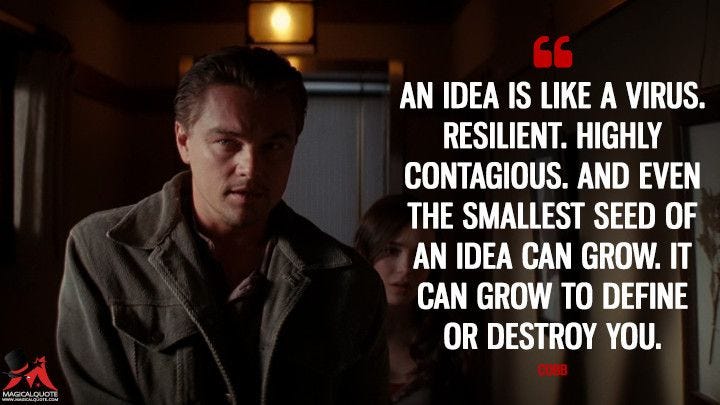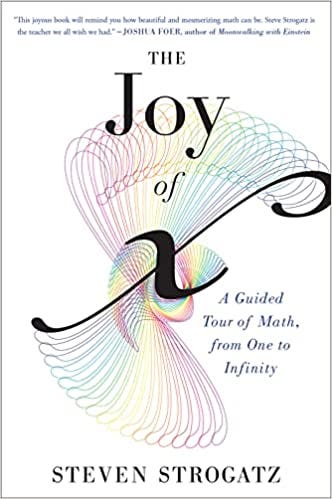The hidden prices of everything you do

What is the cost of acquiring a typical book? You are probably thinking of a number between 10 to 25 dollars. True, but not entirely accurate.
Sure, you have to shell out about 15 dollars to purchase a book. But that’s just the first price you pay. Then you have to account for the time you spend reading, which is more expensive than the 15 dollars purchase price. You should also account for the shelf space this book uses, and if it displaces a different book, what price you pay to get rid of it. You know that I advocate revisiting books (for example, using Readwise), which also costs time and money. And then there is the opportunity cost — what else you could be doing with this 15 dollars and the ten hours, had you not spent them on the book.
When you buy a home after being in a rental, you will pay dearly with your wallet and, more importantly, with your time -- the upkeep and maintenance take time and effort. My friend bought a house recently with a very intricate garden. Either he has to spend several hours per week or hire someone capable, neither of which is cheap.
When you buy and eat junk food, you must pay for it both in terms of your money and health effect.
You can repeat this exercise for everything else you buy or acquire (physical or digital), and you will start to see the hidden prices that you overlooked earlier.
Of course, I am not suggesting we shouldn’t buy anything, or that reading books is bad, or junk food is to be shunned. All of these have some benefits, zero or more. My hope is that you can better estimate the cost when doing the cost-benefit analysis, and are able to see the hidden costs. I hope this can be a tool you use to see the world more clearly.
We frequently consider only the first price we pay and do not consider all the other prices we must pay. Therefore, we are mindlessly acquiring stuff, or we pay the first price and then don’t pay the subsequent prices. I have several books that I have bought but not yet read. I have woodworking equipment for which I haven’t yet paid the price in time to use them.
More than ten years back, in my grad school, I came across someone in the school who was selling his Konica Minolta DSLR for 200 bucks. I didn’t have a camera and wasn’t particularly into photography. I thought this was a good deal and bought the camera.
Little did I know that it will lead me to spend several thousands of dollars on subsequent gear acquisitions and hundreds of hours on a variety of things: taking photos, processing them, reading about photography, cleaning my camera, research gear, looking at other people’s work and so on. All these gear need shelf space as well. Not only did I pay for the camera, but it ended up planting an idea in my head, which caused me to acquire more.
And so you must pay for ideas and thoughts as well. Some ideas can take hold of you and won’t let you go.

A bitter row or a fight might take a few minutes, but you will be paying the price in many forms for much longer.
Of all the other prices we pay for most of the acquisitions, the price we pay with our time is the most significant. I came across an idea where, for everything you want to do (errands, hanging out, meetings, actual work), you put it in your calendar.

Even though it is hard to adopt this, I find the idea appealing because it helps me see the finiteness of time. According to the author Devi Parikh:
Calendars convert time to space. They make the finiteness of time apparent. In a way that physical space constraints are apparent.
The calendar will tell us when we have run out of time. So when we are about to buy a book, if we could ask our calendar to schedule 10 hours for reading the book and the calendar tells us, “sorry, you don’t have that much time in the near future,” then you might end up with a better decision.
Credit: I got the idea for this post from raptitude, though the author mentions only two prices (but has other nice explanations).
Thanks to some settings in Substack, last week’s post was sent out only as email and didn’t appear on the site. So I am pasting it below for posterity.
Hey all, just for a change of pace, I wanted to share a few books and articles I have been reading or just finished reading lately.
Greenlights by Matthew McConaughey
I was pleasantly surprised how good the book read (in my case listened). The book is full of pithy wisdom called bumper stickers, and nice little stories here and there.
Style is knowing who you are, what you want to say, and not giving a damn.
McConaughey gets stuck in Australia (the story is worth listening to) as an exchange student. What is remarkable is that he uses it as a life lesson learning opportunity and comes out stronger out of the crisis.
Why we stopped making Einsteins
Very interesting read about our education system.
How to do less
How to do less by Alex Turek.
Useful and practical tips on how to do less. Here’s a neat template on how to say no:
This isn’t
MAIN_PRIORITY, so we aren’t going to do it until at leastESTIMATED_DONE_DATE.Right now our priority is
MAIN_PRIORITYbecause ofONE_SENTENCE_JUSTIFICATION, and this is 100% our shipping focus.I agree this sounds like a really useful feature - once we finish
MAIN_PRIORITY, should we consider droppingSECOND_PRIORITYand do it?
Prioritization as a Superpower
The best leaders I’ve watched in action are seeing around corners to constantly prioritize. To them, prioritization means sensing the right time to tack, change courses, and re-prioritize. Prioritization means communicating with the team to make sure everyone understands the what and the why, especially in times of change, and is aligned with clarity to move forward.
The Joy of x: A Guided Tour of Math, from One to Infinity
Joy of x By Steven Strogatz
Irrespective of whether you are an expert in Mathematics or a novice, whether you love it or hate it, you will like this book (as long as you have some curiosity about the subject).
How the economic machine works
By the billionaire investor Ray Dalio (who also wrote a bestselling book Principles)
I watched this a long time back, but I have been thinking about the economy and in particular, what makes some countries wealthier than others. And as a corollary, what can be done to transform a developing country into a developed country.
As I have mentioned in the previous posts, I have been traveling to India. Life there is very different compared to the life in the US. So I have been asking myself why this is the case and what can bring economic prosperity.
Perhaps I will read the magnum opus Wealth of Nations by Adam Smith next. More suggestions are welcome.
Anyway, I am back to the US. Being able to hop on to my car and drive myself in orderly traffic was such a rewarding experience after being driven in nightmare traffic situation in India. We take a lot of things for granted, don’t we!





